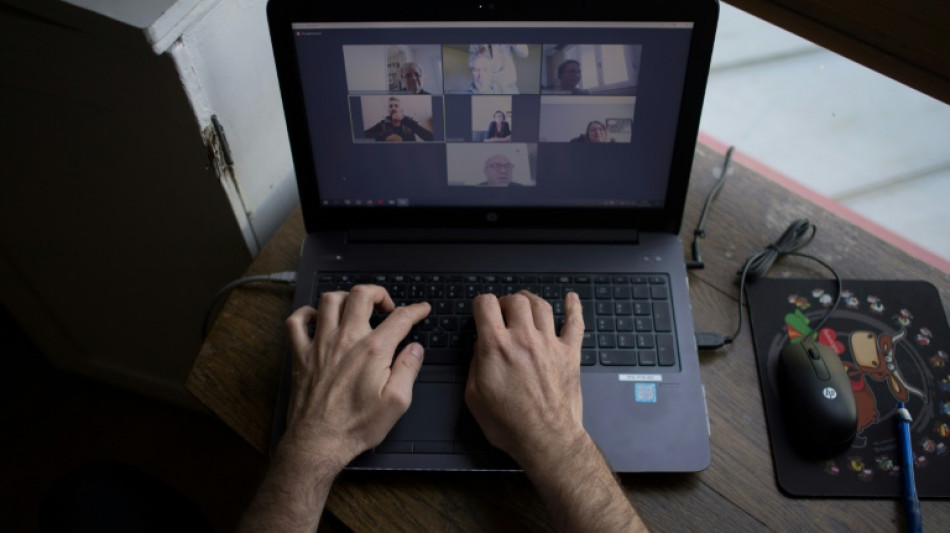
-
 Pollock shines as England eventually overpower Australia
Pollock shines as England eventually overpower Australia
-
Villarreal crush Rayo to move second, Atletico beat Sevilla

-
 Sinner crushes Zverev to reach Paris Masters final, brink of No. 1
Sinner crushes Zverev to reach Paris Masters final, brink of No. 1
-
Pollock shines as England beat Australia in Autumn opener

-
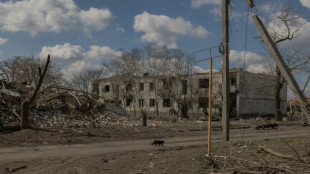 Ukraine sends special forces to embattled eastern city
Ukraine sends special forces to embattled eastern city
-
Arsenal cruise against Burnley as Man Utd held

-
 Pollock shines as England beat Australia 25-7 in Autumn Nations Series
Pollock shines as England beat Australia 25-7 in Autumn Nations Series
-
Gyokeres on target as leaders Arsenal beat Burnley

-
 Woman charged over Louvre heist tears up in court
Woman charged over Louvre heist tears up in court
-
Diomande dazzles as Leipzig go two points behind Bayern

-
 Auger-Aliassime downs Bublik to reach Paris Masters final
Auger-Aliassime downs Bublik to reach Paris Masters final
-
Villarreal crush Rayo to move second in La Liga

-
 Female suspect, 38, charged in Louvre heist: AFP
Female suspect, 38, charged in Louvre heist: AFP
-
US not sending any high-level officials to COP30

-
 India captain Kaur sees World Cup final as possible turning point
India captain Kaur sees World Cup final as possible turning point
-
'Not out of the woods': What now for Britain's ex-prince Andrew?

-
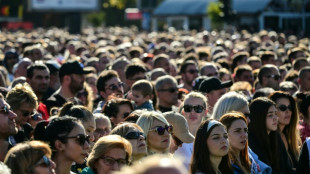 Tens of thousands of Serbians mark first anniversary of deadly train station collapse
Tens of thousands of Serbians mark first anniversary of deadly train station collapse
-
Tanzania president wins 98% in election as opposition says hundreds killed

-
 Vieira 'no longer' manager of troubled Genoa: club
Vieira 'no longer' manager of troubled Genoa: club
-
Tanzania president wins 98% of votes after violence-marred polls

-
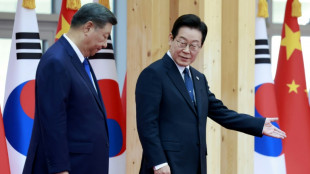 South Korea hosts Xi as Chinese leader rekindles fraught ties
South Korea hosts Xi as Chinese leader rekindles fraught ties
-
England's batting exposed as New Zealand seal ODI series sweep

-
 Funk legend turned painter George Clinton opens show in Paris
Funk legend turned painter George Clinton opens show in Paris
-
Traditional mass wedding held in Nigeria to ensure prosperity

-
 Canada PM says Xi talks 'turning point', apologises to Trump
Canada PM says Xi talks 'turning point', apologises to Trump
-
Iranian tech prodigies battle it out with robots
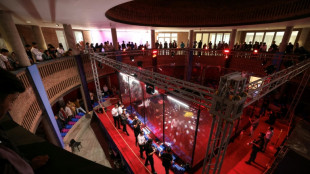
-
 Maldives begins 'generational ban' on smoking
Maldives begins 'generational ban' on smoking
-
Explorers seek ancient Antarctica ice in climate change study
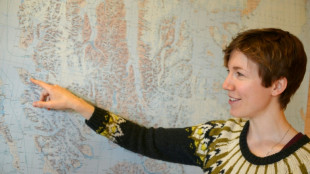
-
 India's Iyer discharged from hospital after lacerated spleen
India's Iyer discharged from hospital after lacerated spleen
-
Serbia marks first anniversary of deadly train station collapse
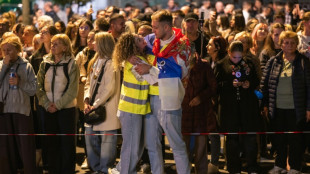
-
 Latin America weathered Trump tariffs better than feared: regional bank chief
Latin America weathered Trump tariffs better than feared: regional bank chief
-
Bangladesh dockers strike over foreign takeover of key port
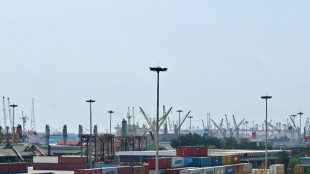
-
 Tanzania president wins election landslide after deadly protests
Tanzania president wins election landslide after deadly protests
-
Dodgers, Blue Jays gear up for winner-take-all World Series game seven

-
 Taiwan's new opposition leader against defence spending hike
Taiwan's new opposition leader against defence spending hike
-
Dodgers hold off Blue Jays 3-1 to force World Series game seven

-
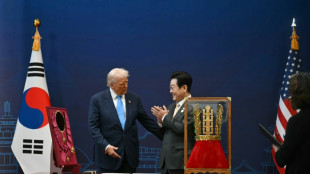 Crowns, beauty, fried chicken: Korean culture meets diplomacy at APEC
Crowns, beauty, fried chicken: Korean culture meets diplomacy at APEC
-
Panama wins canal expansion arbitration against Spanish company

-
 Myanmar fireworks festival goers shun politics for tradition
Myanmar fireworks festival goers shun politics for tradition
-
China to exempt some Nexperia orders from export ban

-
 Sixers suffer first loss as NBA Cup begins
Sixers suffer first loss as NBA Cup begins
-
China's Xi to meet South Korean leader, capping APEC summit
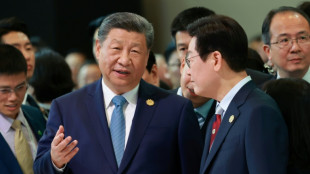
-
 Japan's Chiba leads after Skate Canada short program
Japan's Chiba leads after Skate Canada short program
-
Finland's crackdown on undocumented migrants sparks fear

-
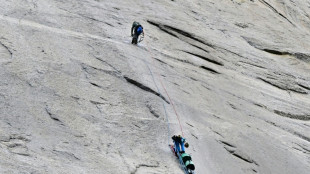 Climbers test limits at Yosemite, short-staffed by US shutdown
Climbers test limits at Yosemite, short-staffed by US shutdown
-
Gstaad gives O'Brien record 21st Breeders' Cup win

-
 After the tears, anger on Rio's blood-stained streets
After the tears, anger on Rio's blood-stained streets
-
Sinner boosts number one bid in Paris, to face Zverev in semis

-
 Springer back in Toronto lineup as Blue Jays try to close out Dodgers
Springer back in Toronto lineup as Blue Jays try to close out Dodgers
-
Nationals make Butera MLB's youngest manager since 1972


Videoconferencing hinders creativity, study finds
People are worse at coming up with creative ideas during a video call compared to meeting in person, a study said Wednesday, suggesting that workplaces should prioritise brainstorming sessions for the office.
The pandemic has changed the nature of office work, propelling a massive rise in videoconferencing that looks unlikely to abate as homeworking becomes more entrenched across the world.
Seeking to find out how this huge change affects creativity, US researchers studied nearly 1,500 employees of a telecommunications company in Finland, Hungary, India, Israel and Portugal.
In pairs, either in person or on a Zoom call, the employees came up with as many creative ideas as they could for the company's products, then picked the best one.
The pairs who spoke in person came up with around 15 percent more, according to the study published in the Nature journal.
The researchers found similar results in an experiment involving more than 600 university students, who were also paired off and told to come up with creative ideas for either a frisbee or bubble wrap.
The in-person pairs came up with 14 percent more ideas.
However, it was not all bad news for Zoom, Skype and the other videoconferencing apps.
Both sets of results found that video calls were just as effective for selecting the best idea, a decision which requires "cognitive focus and analytical reasoning", the study said.
- 'We're most creative when unfocused' -
To understand the difference, the researchers tracked the gaze of the participants.
"In the virtual condition people are looking significantly more at their partner -- almost double -- at the expense of their broader environment," the study's co-author Melanie Brucks, an assistant marketing professor at Columbia University, said in a Nature video.
The study said that "videoconferencing hampers idea generation because it focuses communicators on a screen, which prompts a narrower cognitive focus".
That kind of focus might help select the best idea -- but hinder coming up with one in the first place.
"We're most creative when we're unfocused and free," Brucks said.
"I always suggest turning off the camera during idea generation, so you can walk around, you can look around."
These results could inform how companies plan remote working, said the study -- particularly in hybrid home-office set-ups where "it might make sense to prioritise creative idea generation during in-person meetings".
The researchers added that they had had to exclude results from a telecommunications company's engineers in Poland who, unlike the other groups, met in a hotel conference room.
"Perhaps for this reason, participants exhibited rampant non-compliance, including a notable preoccupation with the hotel catering's coffee and cookie station," the study said.
L.Janezki--BTB



